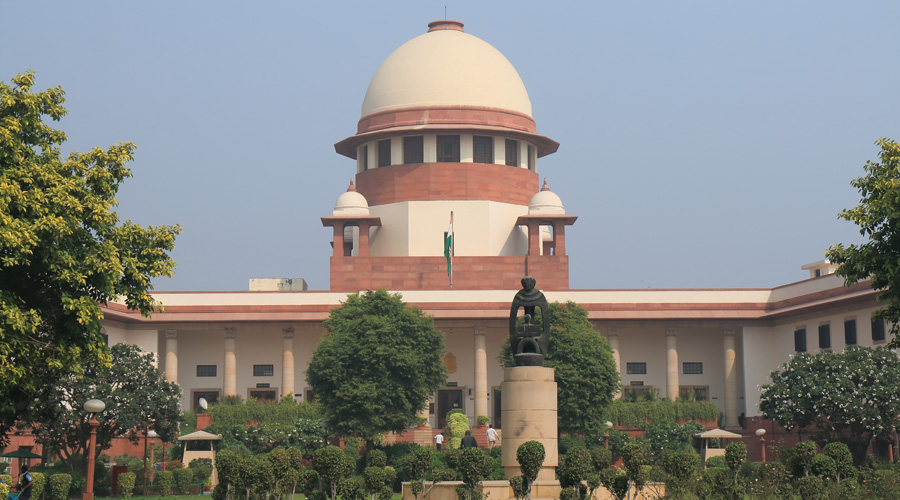The Supreme Court Wednesday permitted an NGO to make Himachal Pradesh and Madhya Pradesh as parties to a pending petition challenging the controversial state laws regulating conversions due to inter-faith marriages.
A bench headed by Chief Justice S A Bobde also allowed Muslim body Jamiat Ulama-I-Hind to become a party to the petition on the ground that a large number of Muslims are being harassed under these laws across the country.
The apex court on January 6 had agreed to examine controversial new laws of Uttar Pradesh and Uttarakhand regulating religious conversions due to interfaith marriages.
The bench, also comprising Justices A S Bopanna and V Ramasubramanian, however refused to stay the controversial provisions of the laws and issued notices to both the state governments on the petitions.
The pleas, filed by advocate Vishal Thakre and others and an NGO 'Citizens for Justice and Peace', have challenged the Constitutional validity of the Uttar Pradesh Prohibition of Unlawful Religious Conversion Ordinance, 2020 and the Uttarakhand Freedom of Religion Act, 2018 which regulate religious conversions of interfaith marriages.
During the brief hearing, senior advocate C U Singh appeared for the NGO and sought impleadment of Himachal Pradesh and Madhya Pradesh as parties saying they have also framed laws on the lines of Uttar Pradesh and Uttarakhand.
The controversial UP ordinance was cleared by the state Cabinet and given assent by Governor Anandiben Patel on November 28.
The ordinance relates to not only inter-faith marriages but all religious conversions and lays down elaborate procedures for any person who wishes to convert to another religion.
The Uttarakhand law entails a two-year jail term to any person or persons found guilty of religious conversion through force or allurement .
The allurement can be in cash, in kind of employment, or material benefit.
Thakre and others in their plea have said that they are aggrieved by the ordinance which curtails the fundamental rights of the citizens of India which has been provided in the Constitution.
The plea said the laws passed by Uttar Pradesh and Uttarakhand against 'Love Jihad' and punishments thereof may be declared ultra vires and null and void, because they disturb the basic structure of the Constitution as laid down by the law.
It said they are against public policy and society at large.
The plea filed by Mumbai based NGO said that both the legislations violate Articles 21 and 25, as they empower the state to suppress an individual's personal liberty and the freedom to practice religion of one's choice.
Jamiat Ulama-I-Hind, in its application filed through advocate Ejaj Maqbool, raises the issue of fundamental rights of the Muslim youth who are being allegedly targeted and demonised by using the impugned ordinance, which in itself is unconstitutional being violative of Articles 14, 21 and 25.
The application said that besides Uttar Pradesh and Uttarakhand, Himachal Pradesh and Madhya Pradesh have also enacted similar legislations.











